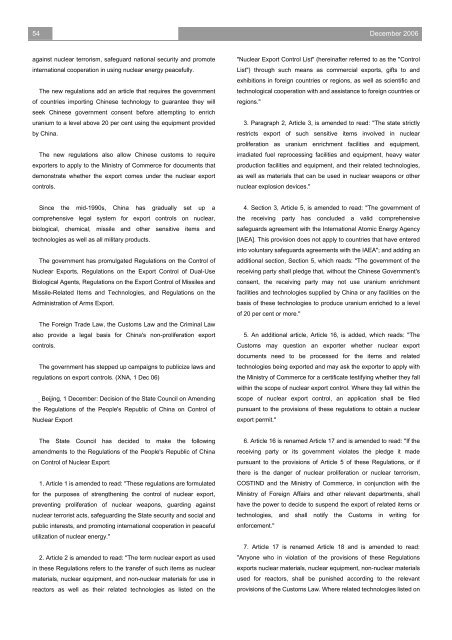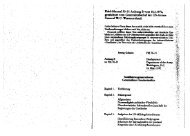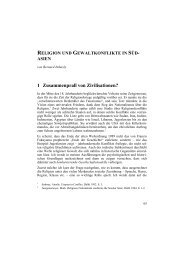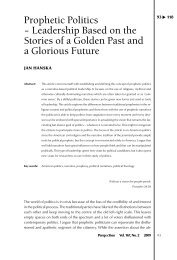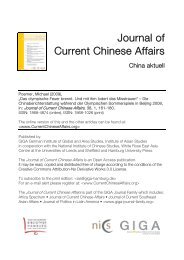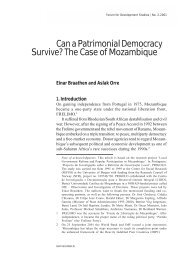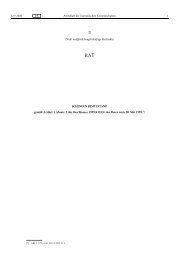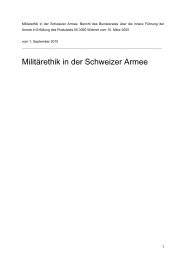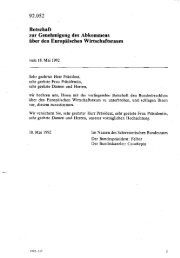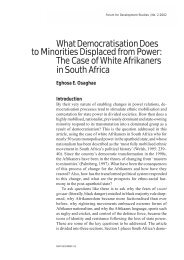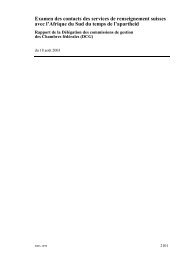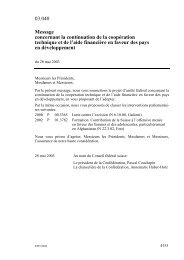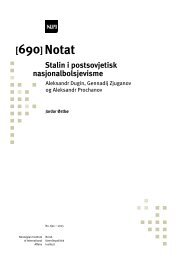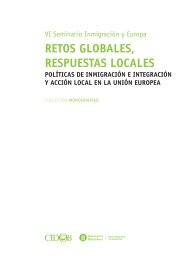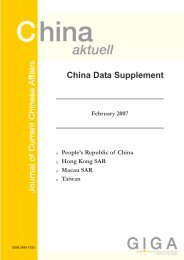China Data Supplement December 2006
China Data Supplement December 2006
China Data Supplement December 2006
You also want an ePaper? Increase the reach of your titles
YUMPU automatically turns print PDFs into web optimized ePapers that Google loves.
54 <strong>December</strong> <strong>2006</strong><br />
against nuclear terrorism, safeguard national security and promote<br />
international cooperation in using nuclear energy peacefully.<br />
The new regulations add an article that requires the government<br />
of countries importing Chinese technology to guarantee they will<br />
seek Chinese government consent before attempting to enrich<br />
uranium to a level above 20 per cent using the equipment provided<br />
by <strong>China</strong>.<br />
The new regulations also allow Chinese customs to require<br />
exporters to apply to the Ministry of Commerce for documents that<br />
demonstrate whether the export comes under the nuclear export<br />
controls.<br />
Since the mid-1990s, <strong>China</strong> has gradually set up a<br />
comprehensive legal system for export controls on nuclear,<br />
biological, chemical, missile and other sensitive items and<br />
technologies as well as all military products.<br />
The government has promulgated Regulations on the Control of<br />
Nuclear Exports, Regulations on the Export Control of Dual-Use<br />
Biological Agents, Regulations on the Export Control of Missiles and<br />
Missile-Related Items and Technologies, and Regulations on the<br />
Administration of Arms Export.<br />
The Foreign Trade Law, the Customs Law and the Criminal Law<br />
also provide a legal basis for <strong>China</strong>'s non-proliferation export<br />
controls.<br />
The government has stepped up campaigns to publicize laws and<br />
regulations on export controls. (XNA, 1 Dec 06)<br />
Beijing, 1 <strong>December</strong>: Decision of the State Council on Amending<br />
the Regulations of the People's Republic of <strong>China</strong> on Control of<br />
Nuclear Export<br />
The State Council has decided to make the following<br />
amendments to the Regulations of the People's Republic of <strong>China</strong><br />
on Control of Nuclear Export:<br />
1. Article 1 is amended to read: "These regulations are formulated<br />
for the purposes of strengthening the control of nuclear export,<br />
preventing proliferation of nuclear weapons, guarding against<br />
nuclear terrorist acts, safeguarding the State security and social and<br />
public interests, and promoting international cooperation in peaceful<br />
utilization of nuclear energy."<br />
2. Article 2 is amended to read: "The term nuclear export as used<br />
in these Regulations refers to the transfer of such items as nuclear<br />
materials, nuclear equipment, and non-nuclear materials for use in<br />
reactors as well as their related technologies as listed on the<br />
"Nuclear Export Control List" (hereinafter referred to as the "Control<br />
List") through such means as commercial exports, gifts to and<br />
exhibitions in foreign countries or regions, as well as scientific and<br />
technological cooperation with and assistance to foreign countries or<br />
regions."<br />
3. Paragraph 2, Article 3, is amended to read: "The state strictly<br />
restricts export of such sensitive items involved in nuclear<br />
proliferation as uranium enrichment facilities and equipment,<br />
irradiated fuel reprocessing facilities and equipment, heavy water<br />
production facilities and equipment, and their related technologies,<br />
as well as materials that can be used in nuclear weapons or other<br />
nuclear explosion devices."<br />
4. Section 3, Article 5, is amended to read: "The government of<br />
the receiving party has concluded a valid comprehensive<br />
safeguards agreement with the International Atomic Energy Agency<br />
[IAEA]. This provision does not apply to countries that have entered<br />
into voluntary safeguards agreements with the IAEA"; and adding an<br />
additional section, Section 5, which reads: "The government of the<br />
receiving party shall pledge that, without the Chinese Government's<br />
consent, the receiving party may not use uranium enrichment<br />
facilities and technologies supplied by <strong>China</strong> or any facilities on the<br />
basis of these technologies to produce uranium enriched to a level<br />
of 20 per cent or more."<br />
5. An additional article, Article 16, is added, which reads: "The<br />
Customs may question an exporter whether nuclear export<br />
documents need to be processed for the items and related<br />
technologies being exported and may ask the exporter to apply with<br />
the Ministry of Commerce for a certificate testifying whether they fall<br />
within the scope of nuclear export control. Where they fall within the<br />
scope of nuclear export control, an application shall be filed<br />
pursuant to the provisions of these regulations to obtain a nuclear<br />
export permit."<br />
6. Article 16 is renamed Article 17 and is amended to read: "If the<br />
receiving party or its government violates the pledge it made<br />
pursuant to the provisions of Article 5 of these Regulations, or if<br />
there is the danger of nuclear proliferation or nuclear terrorism,<br />
COSTIND and the Ministry of Commerce, in conjunction with the<br />
Ministry of Foreign Affairs and other relevant departments, shall<br />
have the power to decide to suspend the export of related items or<br />
technologies, and shall notify the Customs in writing for<br />
enforcement."<br />
7. Article 17 is renamed Article 18 and is amended to read:<br />
"Anyone who in violation of the provisions of these Regulations<br />
exports nuclear materials, nuclear equipment, non-nuclear materials<br />
used for reactors, shall be punished according to the relevant<br />
provisions of the Customs Law. Where related technologies listed on


